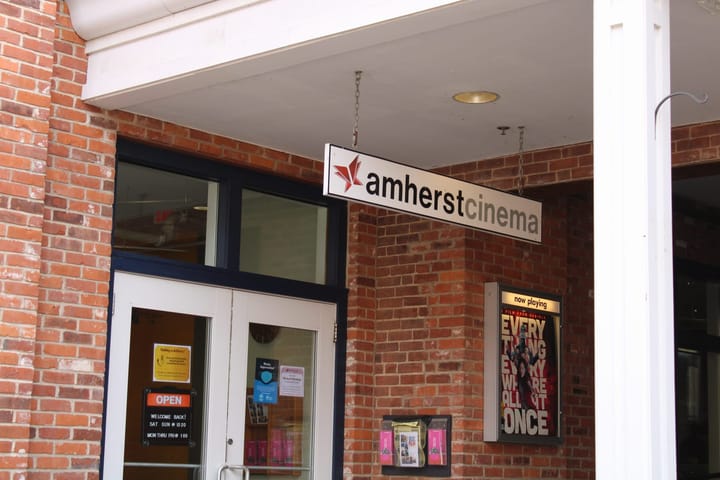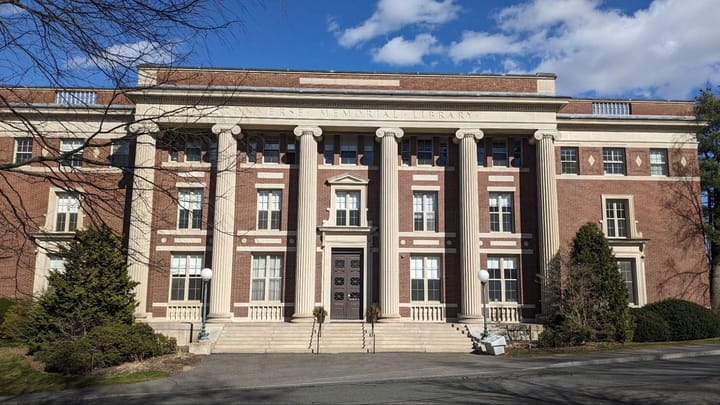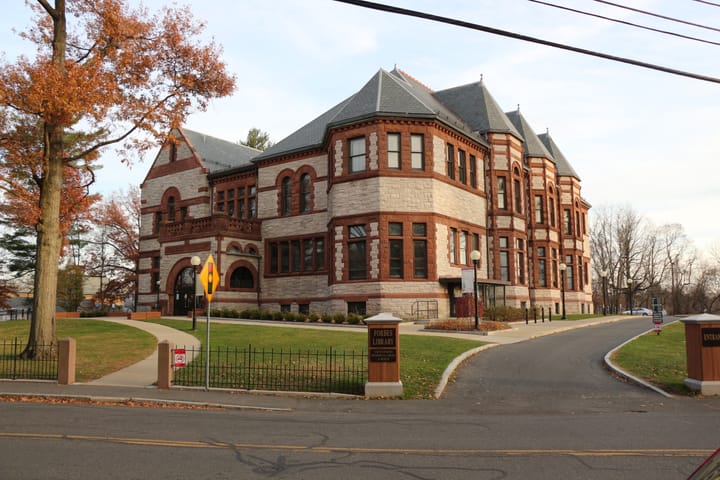Kendall '83 heeds call of the wild
Instead, Kendall is the head of Massachusetts’ largest private conservation group, which protects the environment he grew up in. “Being part of an organization with such tremendous potential and [one that] can have such an impact on the state over time is very exciting,” said Kendall.
The requirements of a job as the head of a nationally renowned conservation organization, such as the Trustees of Reservation, couldn’t come more naturally for an MBA recipient and economics major like Kendall. “A for-profit corporation’s mission is profit. Money is the end; it’s the objective. In a non-profit, money is the means,” Kendall said. “Clearly if you have business and management skills to allow you to make the funds at your disposal go further and accomplish more, that’s huge.”
Kendall’s life since Amherst has been dedicated to following the passions he developed in the Midwest, where he discovered a love for manufacturing. Kendall initially left Amherst unsure of where he wanted to go next. The career center offered him limited options beyond investment banking, a profession that held little allure for Kendall. Instead, he spent part of his first year after college biking through Europe. He spent the other part of the year networking, which he described as “what business people are taught to do.” His jobs have been many since his graduation, but they are joined by a common thread: his love for the environment.
Midwest venture
After a year off, Kendall accepted a position with an animal feed manufacturing company in the Southwest, appropriately named Arizona Feeds. The business was in financial trouble due to corruption among its executives. Soon after Kendall’s arrival at Arizona Feeds, the owner fired all of the upper-level management and named himself president. The twenty-three-year-old Kendall was named vice president and general manager.
“I ran the company from Arizona, while the owner was trying to sell off the company,” said Kendall. “It was an excellent learning experience watching a business dissolve at someone else’s expense.” It proved also to be an excellent segue for Kendall to head to business school.
As Arizona Feeds was being liquidated and sold off in pieces, Kendall enrolled at Harvard in the fall of 1986. After graduation, he faced the same problem he had faced after leaving Amherst-he did not want to work on Wall Street.
Networking paid off again and Kendall headed to Lincoln Electric, a Fortune 500 company in need of fresh new management. Not only was Kendall able to function as an effective manager, but he gained the practical skills necessary to engage in manual labor. “We started out in welding school [and] became certified pipe welders, which I must say is not easy, but I have a job I can fall back on,” he said.
Kendall and his graduate school classmates went to work directly for the president of the company but were each assigned different jobs within the organization. “I was responsible for creating a brand-new nationwide distribution system for the whole company,” Kendall said.
The point of no return
By 1988, having put two hard years of work into Lincoln Electric, Kendall reached a turning point in his life. He felt he needed to select a definite direction for his career. “I was making personal sacrifices and at one point I asked myself, ‘Was I going to spend my life climbing the corporate ladder, or was there some better way to achieve some sort of overall life satisfaction?'” he said.
It was then that Kendall began to consider working for a non-profit organization in hopes that he could realize his business dream. “Both at business school and at Lincoln Electric, I had some exposure to non-profits and I realized that there was a need for business school types in non-profit work,” said Kendall. “They have every bit as much need to be run as a business because that’s what they are.”
Although Lincoln Electric offered him the job of running their entire European division Kendall decided the time had come to devote himself to the environment. “I was much more interested in being in the trenches with my sleeves rolled up-on the ground rather than in some office removed from the issues I was working on,” Kendall said. “What that led me to was that I was not interested in working in a national organization. I liked state organizations much better-much more grassroots.”
His investigation led him to the New Hampshire Audubon Society, a group with some serious financial problems. Kendall quickly realized these difficulties were easily solvable. He stayed with the Audubon Society for three years and eventually became the executive vice president, running day-to-day operations.
But Kendall became restless yet again. “It’s very easy for the Harvard MBA to be pigeonholed into accounting and budget and financing, and although I could help an organization with those issues, I wanted exposure to the programs of the Audubon,” he said.
Much like Kendall had done in the manufacturing sector, accepting different positions at different types of companies, he left the New Hampshire Audubon Society to experience different parts of the environmental movement.
Over the next several years, he worked as an environmental consultant in Costa Rica on a broad array of conservation projects-first as a project manager for Massachusetts Audubon and then as a private consultant in the Northeast.
“I had always wanted to run an organization and have a place where I could always be challenged, have a chance to grow and lead an organization,” he said. What Kendall found was that by consulting on environmental issues in New England he managed to stay in touch with the community as he waited for the right job opportunity. “I learned a lot about New England, which led me to the Trustees [of Reservation] and their role and niche,” Kendall said. “It was a wonderful segue, perfect timing.”
Wide open spaces
In the spring of 2000, Kendall was selected to serve as the executive director of the Trustees of Reservation, America’s oldest private, statewide conservation organization. It was founded in 1891 by several Massachusetts citizens who were alarmed by the fast pace of development and the even faster destruction of open space. The group has since dedicated itself to purchasing and maintaining conservation lands for public use. For more than a century, the Trustees of Reservation has helped to protect some 45,000 acres of land, either through direct purchases or collaborations with other public and private groups.
Today the group is funded by grants, endowments and the dues of over 25,000 members. The Trustees have a commitment not only to protecting the lands but also to ensuring Massachusetts’ citizens access, so that they are able to benefit from the organizations wide variety of conservation lands. “There are lots of built-in inefficiencies in non-profit work,” Kendall said. “It’s difficult to measure your success when you don’t look in financial terms, but business and management training allow for better use of financial and human resources.”
As executive director, Kendall still tries to bring himself closer to the organization’s fieldwork and maintains constant communication with the volunteers. “The work of the organization is not in our headquarters office; the work is out in the field. The people who contribute to [and] volunteer to this organization are dispersed,” said Kendall. “Part of my role is to keep the organization focused on where it’s headed. One of the ways you do that in my position is to continually underscore for the people who are working in all places, the vision, the focus, the direction.”
For Kendall, the power of the Trustees is more than simply about the acreage of land they protect. “[They are] one of the best positioned organizations on land conservation, big enough to get into complex real estate issues,” Kendall said. At any one time, the group will be working on 200 separate land preservation projects. Although only few will result in land purchases by the organization, the Trustees of Reservation has a significant role in state land protection, because it also works with the 170 other land conservation groups in the state of Massachusetts.
Kendall himself prefers to work in the field with the volunteers. “What I like to spend my time on is being out in the field. We have 130 staff spread across 91 properties, and I believe that I need to be a presence in the field, on the road,” he said. “I’m out looking at new targets and new conservation, brainstorming with the staff about how we could put some of these things together.”
For a man who began his career in manufacturing, acting as a leader in the land conservation movement in the beginning of the 21st century may seem a bit odd. But for a man who grew up by the ocean, the mountains and the forests, this is simply a homecoming.





Comments ()